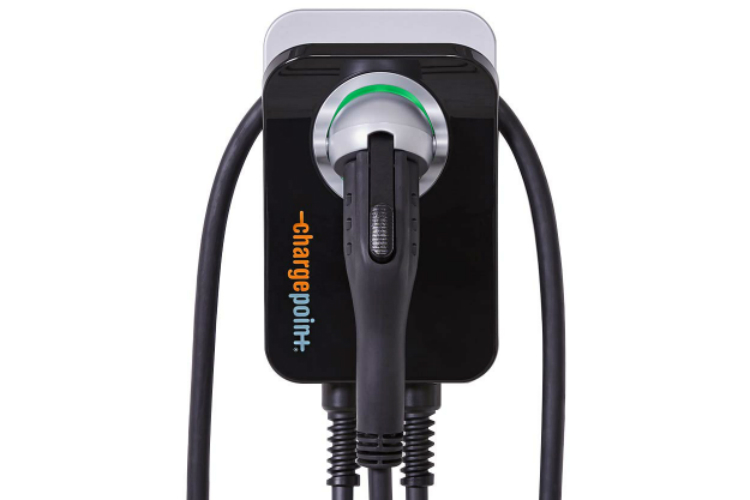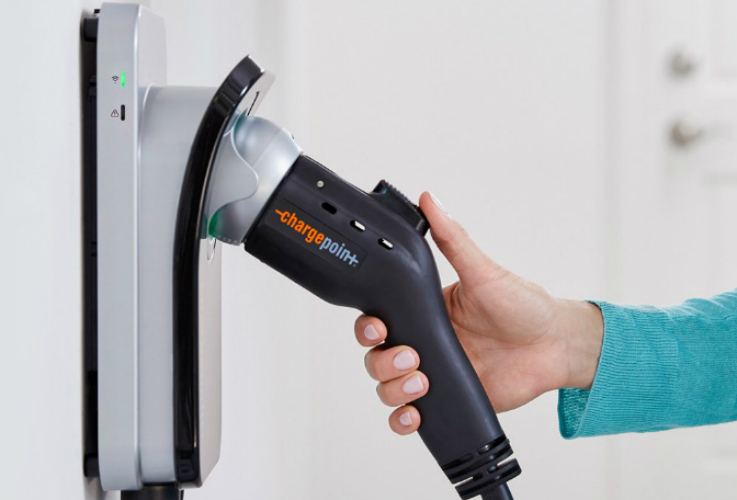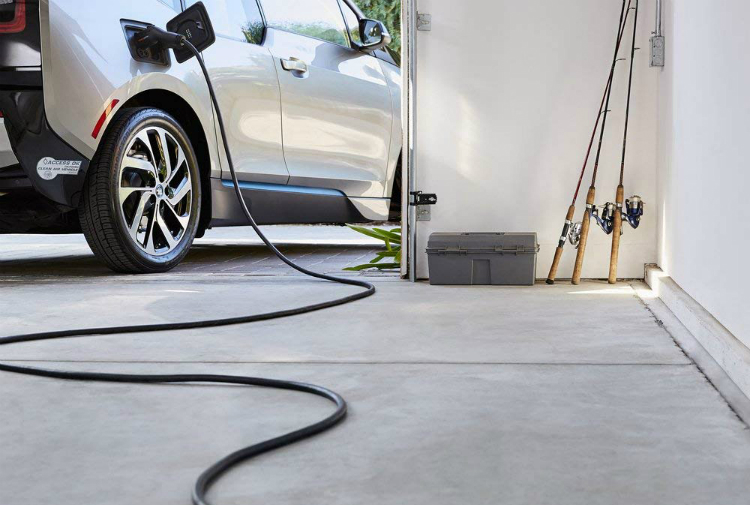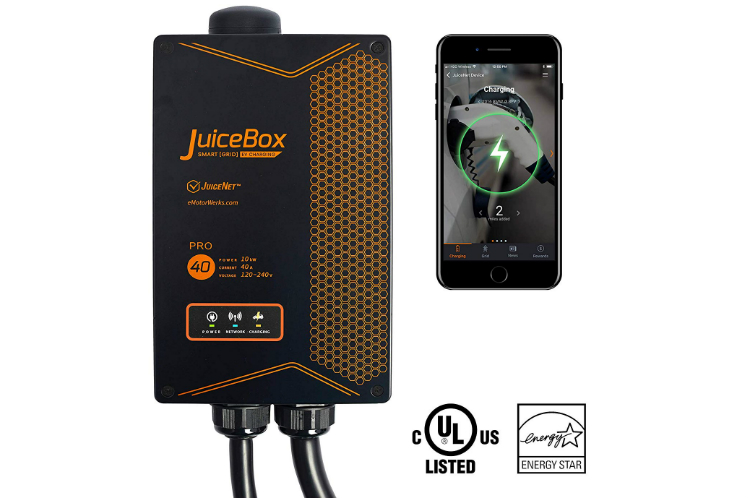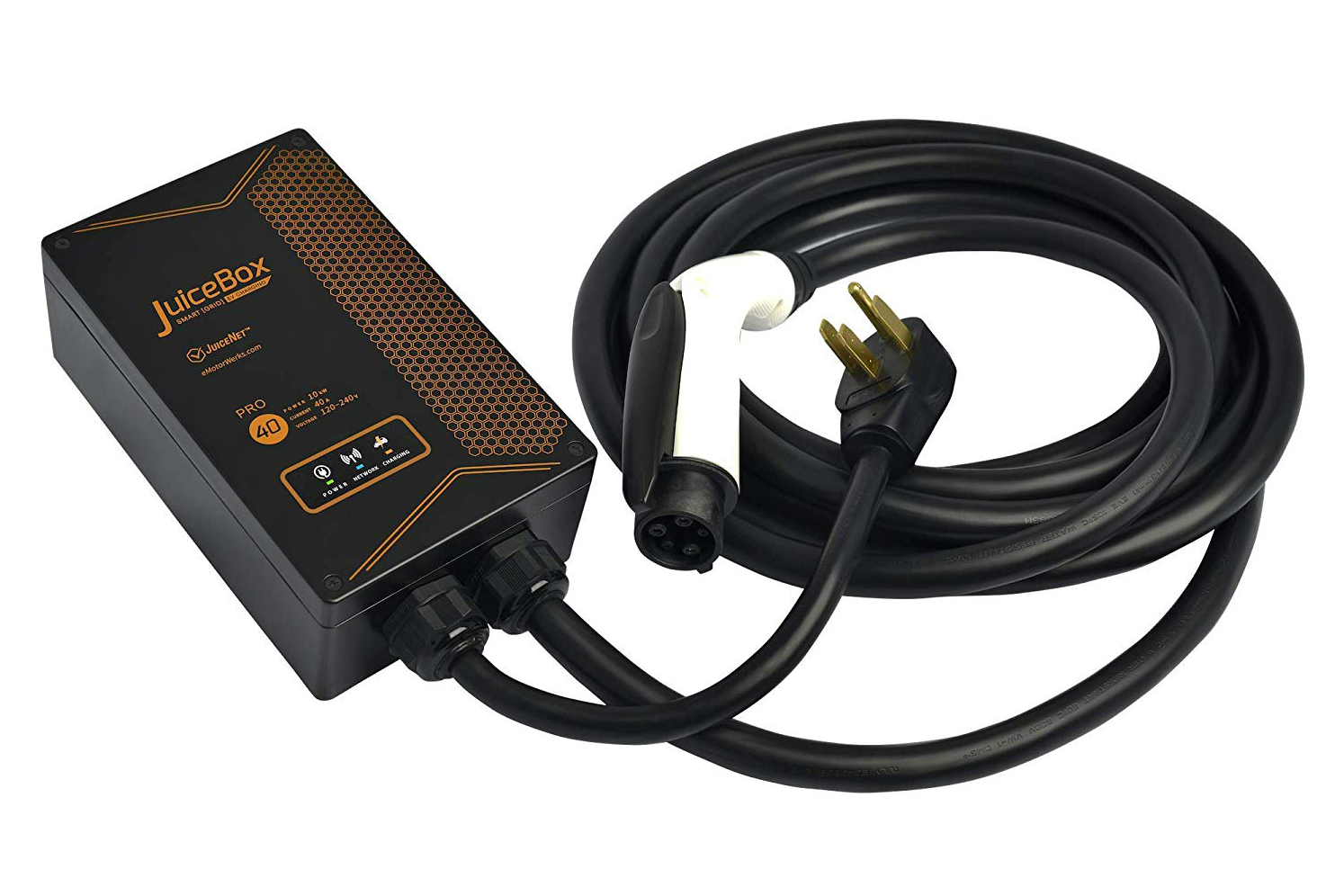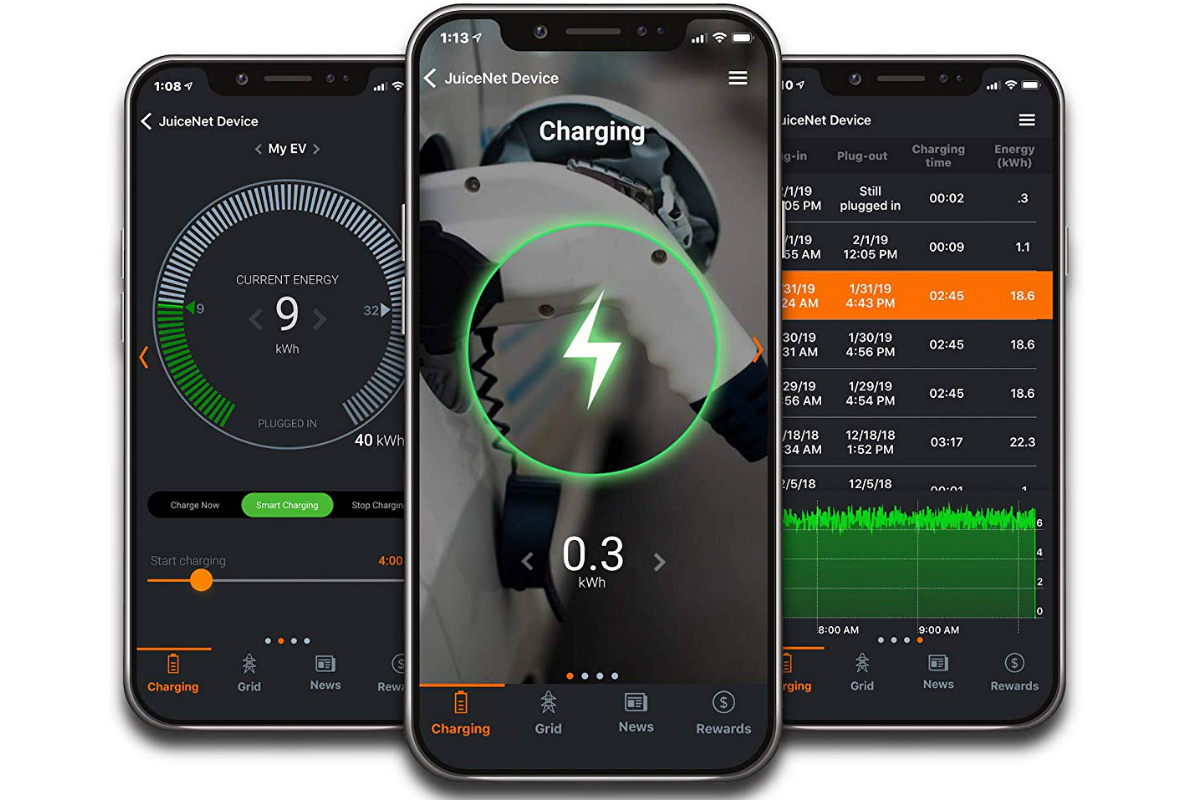Kia Motors announced a new program with Amazon for electric vehicles (EVs) and plug-in hybrid electric vehicles (PHEVs). Customers who purchase a new Kia EV or PHEV can buy one of Kia’s recommended Level 2 240-volt home charging stations on Amazon. Once they’ve selected a charger, customers can arrange installation in their homes by licensed electricians handpicked and certified by Amazon before they take delivery of their new cars.
Kia currently sells two electric-only models, the Soul EV and Niro EV, plus two plug-in hybrids, the Niro PHEV and Optima PHEV. Kia electric vehicles can charge their batteries by plugging into a standard 120-volt household outlet, also known as Level 1 charging. However, with a 2019 Soul EV, for example, it can take 33 hours for a full charge. With a Level 2 charger, however, a Soul EV recharges in 5.1 to 6 hours, according to the Amazon’s ChargeMyKia page.
“Home-charging can’t get any easier than this,” Kia’s Orth Hedrick, executive director of car planning and telematics, said in a news release. “Being able to order a Level 2 charger and installation through Amazon further demystifies and simplifies the experience for new Kia EV and PHEV owners. It’s just another example of how we’re constantly striving to provide the very best vehicles and customer experience.”
Kia currently recommends three 240-volt Level 2 charging stations, from Bosch, ChargePoint, and JuiceBox. The prices for the chargers, not including installation, currently range from $549 to $764.
Bosch EL-51866-4018 Power Max 2, 40-Amp Electric Vehicle Charging Station — $764
The Bosch EL-51866-4018 Power Max 2, 40-Amp Electric Vehicle Charging Station includes an 18-foot service cable with a standard SAE J1772 plug. Rated for indoor or outdoor installation, the Bosch charger has a thermal sensor to protect against overheating, multifunction LEDs for charging and power status, and an on-off switch. The charging station comes with a 3-year limited warranty.
The Bosch Cable EL-51866-4018 Power Max 2, 40 Amp Electric Vehicle Charging Station with an 18-foot service cord sells for $764.
ChargePoint Home WiFi Enabled Electric Vehicle Charger – Level 2 EVSE, 240 Volt — $620
ChargePoint’s Home Wi-Fi Enabled Electric Vehicle Level 2 EVSE 240-volt charger Charger – Level 2 EVSE, 240 Volt is a 32-amp charger that comes with an 18-foot charging cord. This charger can be hardwired or used as a plug-in with a 40-amp NEMA 6-50 power outlet. The ChargePoint can be installed indoor or outdoor, but the plug-in installation is for indoor applications only. Using the ChargePoint app, you can schedule charging when rates are lowest and set reminders so you don’t try to drive away in a car you forgot to charge. The ChargePoint Home Wi-Fi charger is also Alexa compatible so you can control it by voice.
Normally priced at $699, the ChargePoint Home Level 2 charger is just $620 during a current sale.
JuiceBox Pro 40 Smart Electric Vehicle (EV) Charging Station with Wi-Fi — $549
The JuiceBox Pro 40 Smart Electric Vehicle (EV) Charging Station with Wi-Fi is a 40-amp Level 2 EVSE. The JuiceBox Pro, like the ChargePoint unit, can be installed via hardwire or with a plug-in installation so you can take the charger with you if you move. The JuiceBox Pro comes with a 24-foot charging cable, can be installed inside or outside, and, also like the ChargePoint charger, can be controlled with a smartphone app or by voice command with Amazon Alexa.
Normally priced at $619, the JuiceBox Pro 40 is currently on sale for $549.

